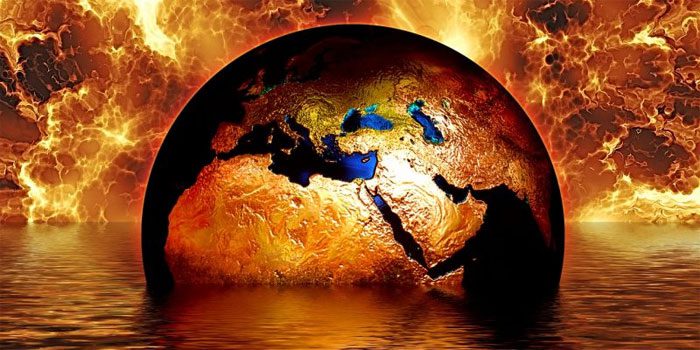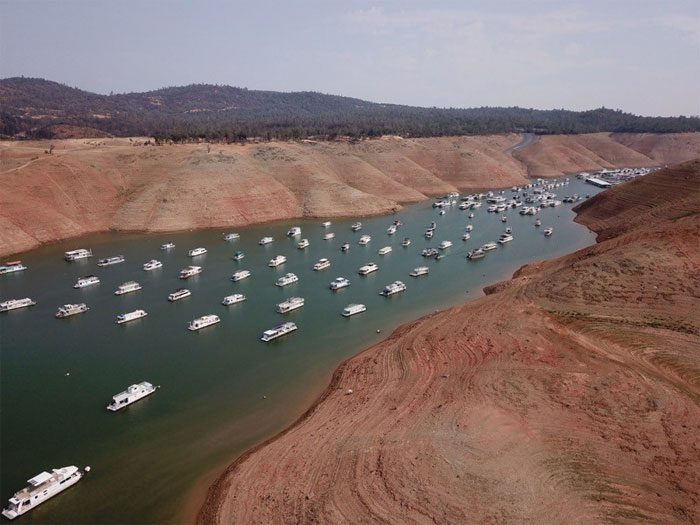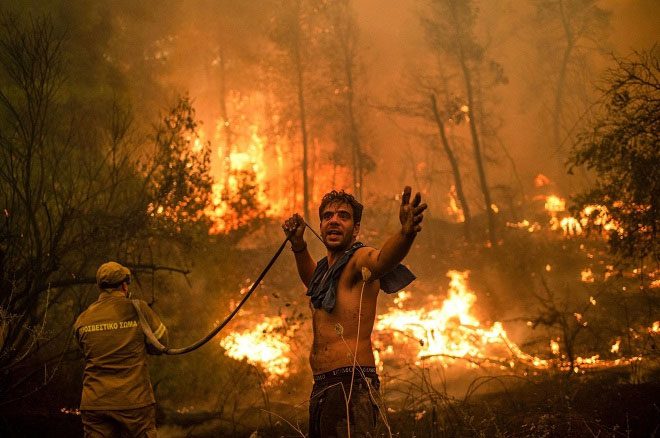The modern society continues to rely on fossil fuels, causing unprecedented global warming and resulting in catastrophic consequences such as droughts, wildfires, and floods around the world, according to a newly released United Nations report on climate change.
The report assesses the global climate situation from the Intergovernmental Panel on Climate Change (IPCC) and was published on August 9, as reported by Nature.
The IPCC states that the situation will worsen if greenhouse gas emissions continue at current high levels. The IPCC emphasizes that the future of Earth depends on humanity’s choices right now.

The new United Nations report on climate change serves as a wake-up call for all of humanity.
“The evidence is everywhere. If we do not act, the situation will only get worse,” said Xuebin Zhang, a climate scientist in Toronto, Canada, and one of the authors of the report.
This is the sixth global climate report from the IPCC since 1990, with over 200 scientists contributing to its drafting over the years, and it was approved by 195 countries during an online meeting last week.
Only when global emissions return to zero by 2050, a goal that many countries have committed to, can the world hope to achieve the targets set in the Paris Agreement of 2015, which aims to limit global temperature rise to 1.5 degrees Celsius compared to pre-industrial levels.
“The climate that humanity will experience in the future depends on decisions made right now,” said Valérie Masson-Delmotte, a French climate scientist and co-chair of the physical science group involved in drafting the report.
Global surface temperatures have increased by approximately 1.1 degrees Celsius since the period of 1850-1900, the highest level in the past 125,000 years, prior to the last ice age, according to the IPCC.

The state of California in the United States is experiencing severe drought this summer.
Global ocean levels have risen by about 20cm since 1900. The fragmentation and melting of ice sheets in Antarctica and Greenland due to global warming have caused sea levels to rise at three times the rate of the previous decade.
The report outlines a series of impacts that climate change is causing to the Earth, which are clearly evident in both the northern and southern polar regions.
Arctic ice coverage at the end of summer is now lower than it has been for at least 1,000 years. The disappearance of glaciers is unprecedented in 2,000 years.
The oceans are warming at an unprecedented rate since the end of the last ice age, 11,000 years ago.
The IPCC report discusses methane (CH4), the second most important greenhouse gas after CO2. Scientists indicate that current CH4 levels in the atmosphere are the highest in 800,000 years.
The IPCC highlights extreme climate change consequences such as heatwaves, droughts, and heavy rainfall, all reaching record levels.
According to Zhang, if temperatures rise by 2 degrees Celsius this century, extreme weather events that previously occurred once every 50 years will now occur every 3-4 years.

Extreme weather events are becoming increasingly common on Earth.
“We are not just facing a single threat of climate change, but a series of threats occurring simultaneously,” Zhang stated.
The report indicates that rising sea levels will be a phenomenon that humanity will feel acutely for many centuries, even millennia. If the temperature increase is kept at 1.5 degrees Celsius, sea levels could rise by 2-3 meters over the next 2,000 years and up to 6 meters if the temperature rises by 2 degrees Celsius. As a result, the lives of hundreds of millions of people in coastal areas will be disrupted.
The report warns that some of the most severe impacts of climate change cannot be ruled out, including the disappearance of massive ice sheets, arid forests, and abrupt changes in ocean currents.
The IPCC emphasizes that the greatest uncertainty in all climate change forecasts is that no one is sure how humanity will act. Over the past three decades, the IPCC has warned of the dangers of global warming, yet countries have not yet taken concrete actions toward clean energy and halting greenhouse gas emissions.
“Perhaps now, things will change. Because humanity has clearly felt the negative consequences of climate change,” Zhang remarked. “The worst has happened and is happening, and everyone can feel it. That is the truth.”



















































